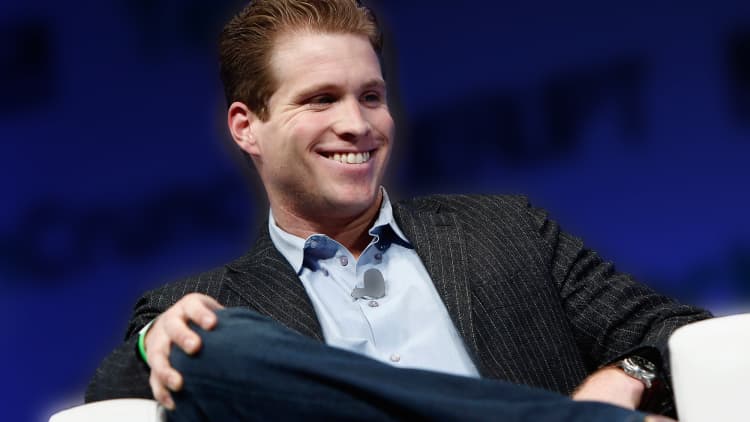
Silicon Valley venture capitalist Joe Lonsdale has just raised a $640 million fund and plans to spend a good chunk of that in health care.
Lonsdale, who co-founded software company Palantir and backed virtual reality company Oculus, now sees health as the market where start-ups can have the biggest impact addressing some of society's most systemic problems.
In an interview with CNBC, Lonsdale said technology giants like Apple, Google and Amazon have big aspirations in the market, but even bigger hurdles to overcome.
"I'm skeptical of big companies with established cultures coming into health," he said.
Lonsdale has made some early-stage health bets, including biotech start-up Synthego and health insurer Oscar Health. But for his next fund, which he closed in late April, he plans to double down on the space.
One area of emphasis is finding companies that will benefit from the recent shift away from fee-for-service health care, where doctors get paid for tests and procedures, to value-based care, where they get paid for keeping their patients healthy.
Better outcomes
In terms of technology, Lonsdale wants to invest in tools that can help patients achieve better outcomes. That means algorithms that can help health providers figure out "this action at this time to help the patient get better," he said.
For example, oncologists with better information about their cancer patients could make more informed and personalized decisions about treatment options.
"We could be saving a lot of people," Lonsdale said.
While he's investing in start-ups, Lonsdale understands that entrepreneurship alone can't solve all of the problems of health care, a complex multitrillion-dollar sector dominated by incumbent health plans, insurers and hospital groups.
Rather, the government needs to play a role in helping change incentives, so health-care companies can get properly rewarded. That includes encouraging electronic health records companies to work together so patient data can flow more smoothly between hospitals, clinics and patients.
If the government required these systems to be open, "we could solve the problems more quickly," Lonsdale said.


